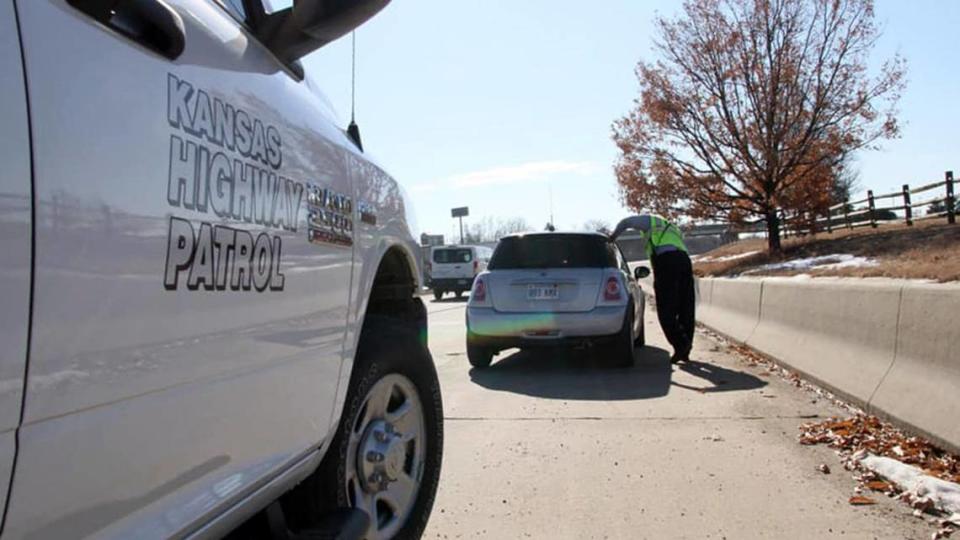New safeguards on Kansas police seizures of property coming after Kelly signs reforms
Kansas Gov. Laura Kelly on Tuesday signed into law the most substantial overhaul of the state’s civil asset forfeiture rules in years, the latest effort by lawmakers to reform law enforcement seizures of property.
The controversial but widespread practice allows police to take property they believe is connected to a crime before anyone is charged or convicted. Kansas law enforcement seized $3.91 million of property in 2023, with approximately $2.38 million forfeited.
The new law raises the standard of evidence for seizures, imposes stricter deadlines on law enforcement and requires the filing of affidavits of probable cause before forfeiture proceedings begin.
Kelly, a Democrat, described the measure, SB 458, as providing new guidelines for forfeiture, improving due process for property owners and increasing governmental accountability.
“This bill represents a significant step forward in ensuring fairness and accountability in asset forfeiture proceedings,” Kelly said in a statement. “These reforms will protect the rights of property owners and promote greater transparency in law enforcement practices.”
The Legislature passed the bill unanimously earlier this month.
More than 70% of the 1,884 seizure incidents between July 2019 and November 2023 resulted in uncontested or default forfeitures of property, according to official Kansas data. Half of seizures were valued under $3,116. At that amount, hiring an attorney to fight a forfeiture likely costs more than the value of the seized assets – leaving many individuals who have had their property taken in a bind.
In response, the new law allows courts to award attorneys fees to some individuals who successfully win back their property. The change is intended to encourage lawyers to take on forfeiture cases.
Law enforcement defends civil asset forfeiture as a crucial tool allowing officers to disrupt criminal enterprises, especially drug trafficking ones, but critics say it infringes on property rights and encourages profit-based policing because agencies sometimes use forfeiture proceeds to purchase vehicles and equipment.
In civil asset forfeiture, law enforcement must link property to a crime, showing it was used to help carry out a crime or represents the proceeds of criminal activity. But because it’s a civil matter, officers don’t have to prove a crime happened beyond a reasonable doubt the way prosecutors would have to at a criminal trial. Instead, they only have to show that a majority of the evidence ties the property to criminal activity.
The new law requires clear and convincing evidence to move forward with a seizure, an intermediate standard short of beyond a reasonable doubt but greater than preponderance of the evidence.
“I am thankful to have worked with my colleagues on both sides of the (aisle) and state house as we brought forth the most significant reforms in decades to our Civil Asset Forfeiture procedures,” Rep. Stephen Owens, a Hesston Republican who chaired a special committee on civil asset forfeiture, wrote on social media.
“This is a great day for Kansas! I’m thankful the Governor agreed.”
Efforts to change the civil asset forfeiture process in Kansas have been underway for years. In 2016, state auditors found several law enforcement agencies lacked important controls for liquidating forfeited property. And in 2018, the Legislature approved enhanced reporting requirements surrounding forfeitures.
The renewed overhaul push during the 2024 legislative session came after years of additional data have made clear the scope of civil asset forfeiture and the rarity of forfeiture challenges. Several states have implemented their own changes in recent years, including Illinois, which made it harder to forfeit property, and Nebraska, which abolished civil asset forfeiture in 2016.
Law enforcement has also come under greater scrutiny in Kansas, after a federal judge ruled last summer that the state Highway Patrol violated the civil rights of motorists and the raid by local police of the Marion County Record in August. An investigation by The Star last year found numerous instances of Fourth Amendment violations by Kansas police over the past decade.
Rep. Dan Osman, an Overland Park Democrat who was involved in legislative negotiations over the bill, said that anyone who learns about civil asset forfeiture “immediately agrees it’s a problem.” But action in the past had been held up because lawmakers couldn’t agree on a solution, he said.
“This year, I worked with judges, lawyers, law enforcement, legislators, and advocates from across the state to create a bill that comprehensively reforms this systemic issue,” Osman said in a statement.
“I’m thrilled we could get unanimous bipartisan and bicameral approval to eliminate this injustice.”



